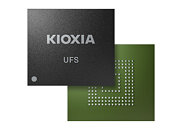Sabrent Announces the Rocket 4 DRAMless M.2 Gen 4 SSD
Sabrent today debuted the Rocket 4 line of DRAMless M.2 NVMe Gen 4 SSDs. Built in the M.2-2280 form-factor, these drives take advantage of the PCI-Express 4.0 x4 host interface, and provide sequential transfer speeds of up to 7.4 GB/s reads, with up to 6.4 GB/s writes. The drives also offer 4K random access performance of up to 1 million IOPS reads, and 0.95 million IOPS writes. For now, Sabrent is launching 1 TB and 2 TB capacity variants of the Rocket 4, but the company is preparing to launch a larger 4 TB variant soon.
The Sabrent Rocket 4 combines a Phison E27T series DRAMless controller with Kioxia 162-layer 3D TLC NAND flash memory (also known as the BiCS 6). There's just a copper foil heat spreader to keep things cool. The 12 nm E27T doesn't run anywhere near as hot as the E18, so you can make do with the heatsink your motherboard includes, or run it the way it is. The 1 TB variant is priced at $99.99, and the 2 TB variant at $199.99. The company didn't reveal pricing of the unreleased 4 TB variant.
The Sabrent Rocket 4 combines a Phison E27T series DRAMless controller with Kioxia 162-layer 3D TLC NAND flash memory (also known as the BiCS 6). There's just a copper foil heat spreader to keep things cool. The 12 nm E27T doesn't run anywhere near as hot as the E18, so you can make do with the heatsink your motherboard includes, or run it the way it is. The 1 TB variant is priced at $99.99, and the 2 TB variant at $199.99. The company didn't reveal pricing of the unreleased 4 TB variant.










































